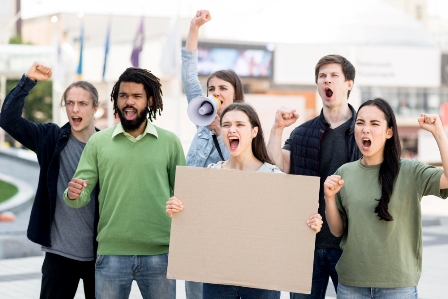CUNY Law School, also known as the City University of New York School of Law, is a renowned institution dedicated to legal education. Situated in the vibrant city of New York, it has a rich history and an impressive reputation in the legal field. In this article, we will explore the various aspects of CUNY Law School, including its history, academic programs, faculty, campus, community engagement, admission process, student life, and much more.
History of CUNY Law School
CUNY Law School was founded in 1983, and since then, it has been a trailblazer in the legal education landscape. It was established with a unique mission to provide access to legal education to individuals from underrepresented and marginalized communities. Over the years, it has achieved this mission by offering a comprehensive and progressive curriculum
Why Choose CUNY Law School?
CUNY Law School prides itself on being a different kind of law school. It’s not just about creating lawyers; it’s about creating agents of change. The school’s unwavering commitment to social justice is what sets it apart. Here, students are encouraged to use the law as a tool for equity and fairness.
Academic Programs and Specializations
CUNY Law School takes great pride in its diverse and comprehensive range of academic programs and specializations, which are designed to prepare students for the ever-evolving legal landscape. Here, we delve into the various academic offerings and areas of specialization that make CUNY Law School stand out.

Juris Doctor (JD) Program:
The Juris Doctor program at CUNY Law School is the cornerstone of legal education. It provides students with a strong foundation in general law and equips them with the critical thinking and problem-solving skills necessary for a successful legal career.
Public Interest and Social Justice Law:
At the heart of CUNY Law School’s mission is its commitment to public interest and social justice. The school offers specialized courses and clinics that focus on issues such as civil rights, human rights, environmental justice, and immigration law.
Environmental Law:
With growing environmental concerns, CUNY Law School’s Environmental Law program is highly relevant. It covers areas like environmental regulations, sustainability, and the legal aspects of addressing climate change.
Human Rights Law:
This specialization is for students who are passionate about global justice issues. It delves into international human rights, humanitarian law, and advocacy for marginalized communities.
Immigration Law:
Given the importance of immigration law in today’s society, CUNY Law School offers courses and clinics that help students understand immigration policies, refugee law, and immigrant rights.
Family and Child Advocacy:
This specialization prepares students to advocate for the rights and well-being of families and children. It covers topics such as child welfare, family law, and child advocacy.
Campus Life and Student Experience
Campus Environment
CUNY Law School’s campus offers a vibrant and enriching environment where students can immerse themselves in the world of law and social justice. In this lesson, we will describe the dynamic campus life and the unique student culture that makes CUNY Law School stand out.
- Inclusive Atmosphere:
The campus environment at CUNY Law School is known for its inclusivity. Students from diverse backgrounds come together to learn and engage in meaningful discussions. This inclusive atmosphere fosters a rich exchange of ideas and perspectives.
- Community Engagement:
Students are encouraged to participate in various community engagement initiatives. The campus serves as a hub for legal clinics and outreach programs where students can apply their legal knowledge to real-world situations, addressing pressing issues in the community.
- Collaborative Learning:
Collaboration is at the core of campus life. Students often work together on group projects, moot court competitions, and advocacy initiatives, fostering a sense of teamwork and camaraderie.
Extracurricular Activities
CUNY Law School provides a wide range of extracurricular activities that allow students to pursue their interests and passions beyond the classroom. In this lesson, we will discuss the diverse student organizations, clubs, and activities available on campus.
- Student Organizations:
The school hosts numerous student organizations that cater to various interests and causes. These organizations focus on areas such as civil rights, environmental justice, LGBTQ+ rights, and more. Students can join these groups to actively participate in related events and initiatives.
- Law Journals:
CUNY Law School publishes several law journals, providing students with opportunities to contribute articles and research papers. These journals cover a wide range of legal topics and offer valuable experience in legal writing and publishing.
- Moot Court and Mock Trial:
For those interested in litigation and advocacy, the school offers moot court and mock trial teams. Students can compete in national competitions, refining their courtroom skills.
Admission and Application Process

Admission Requirements
Before embarking on your journey at CUNY Law School, it’s crucial to understand the admission requirements and criteria that ensure you meet the necessary prerequisites. In this lesson, we will explain what it takes to gain admission to CUNY Law School.
Academic Prerequisites:
CUNY Law School considers your undergraduate academic performance, typically requiring a bachelor’s degree from an accredited institution. A strong academic record is advantageous.
- LSAT Score:
The Law School Admission Test (LSAT) is a significant component of the application. A competitive LSAT score is important and often a key factor in the admission decision.
- Letters of Recommendation:
You’ll need to submit letters of recommendation. Typically, two or three letters are required, which should come from individuals who can speak to your academic and personal qualities.
- Personal Statement:
The personal statement is a crucial part of your application. It allows you to articulate your passion for law and your specific interests. Be sure to address how your values align with the school’s mission.
Application Process
Now that you’re familiar with the admission requirements, let’s delve into the step-by-step guidance on how to apply to CUNY Law School.
- Research:
Begin by thoroughly researching CUNY Law School’s programs, values, and mission. Ensure that your interests align with the school’s focus on public interest and social justice.
- LSAC Account:
You’ll need to create an account with the Law School Admission Council (LSAC), the organization responsible for processing law school applications.
- Complete the Application:
Access CUNY Law School’s application via the LSAC website. Fill out the application form, providing accurate and detailed information.
- Personal Statement:
Craft a compelling personal statement. This is your opportunity to convey your passion for law and your alignment with the school’s mission.
- Letters of Recommendation:
Request letters of recommendation from individuals who can speak to your qualifications. Make sure to give your recommenders ample time to write and submit their letters.
Community Engagement and Social Justice

Community Involvement
At CUNY Law School, community engagement and pro bono work are not just optional; they are integral to the school’s mission and identity. In this lesson, we will highlight the importance of community involvement and pro bono work in the context of legal education and social justice.
- Social Justice at the Core:
Community involvement and pro bono work are at the core of CUNY Law School’s mission. The school places a strong emphasis on training lawyers who are dedicated to social justice and the betterment of underserved communities.
- Real-World Impact:
Students engage in community projects and pro bono work to apply their legal knowledge to real-world situations. This hands-on experience provides a profound understanding of the impact of the law on people’s lives.
Legal Clinics and Initiatives
CUNY Law School offers a variety of programs and initiatives designed to promote social justice and provide practical legal experience. In this lesson, we will explore the different legal clinics and initiatives available to students.
- Legal Clinics:
The school hosts several legal clinics that focus on specific areas of law. Students have the opportunity to work on real cases under the guidance of experienced faculty. These clinics address issues such as immigration, environmental justice, family law, and civil rights.
- Practicum Courses:
In addition to traditional classroom education, CUNY Law School offers practicum courses where students can gain practical experience in specific legal areas. These courses allow students to work on projects that benefit the community.
CUNY Law School Rankings and Achievements
CUNY Law School has earned recognition and achieved notable milestones in the field of legal education and social justice. While law school rankings can vary depending on the criteria used, it is important to understand the broader achievements and contributions that CUNY Law School has made to society. Here are some key aspects that showcase the school’s rankings and achievements:
Diversity and Inclusivity:
CUNY Law School has consistently been recognized for its commitment to diversity and inclusivity. It has been praised for its diverse student body, faculty, and inclusive atmosphere, reflecting its dedication to providing access to legal education for underrepresented communities.
Social Justice Focus:
The school’s strong emphasis on social justice and public interest law has earned it a distinct reputation. CUNY Law School is often ranked highly for its programs and initiatives related to social justice, including legal clinics, advocacy centers, and community engagement.
Pro Bono Work:
The school encourages pro bono work and community involvement, and its students actively contribute to the legal needs of underserved communities. This commitment to pro bono service is a distinguishing feature of CUNY Law School.
Legal Clinics:
CUNY Law School’s legal clinics have received recognition for their real-world impact and the invaluable services they provide to the community. These clinics often address pressing issues, such as immigration rights, environmental justice, and civil rights.
Publications and Research:
Faculty and students at CUNY Law School have published numerous legal articles, books, and research papers that contribute to the body of legal knowledge and address important legal issues. This scholarly output is a testament to the school’s academic contributions.
Career Opportunities and Support
Career Services
CUNY Law School is committed to providing students with comprehensive career services that empower them to succeed in their legal careers. In this lesson, we will explore the resources and support available to students for their career development.
- Career Counseling:
The school offers one-on-one career counseling, where students can receive personalized guidance on their career paths. This includes assistance with resume building, interview preparation, and career goal setting.
- Job Search Support:
CUNY Law School provides job search resources, including access to job postings, internships, and fellowship opportunities. Students can explore a wide range of legal careers and find positions that align with their interests and values.
- Networking Opportunities:
Networking is a critical aspect of career development. The school organizes networking events, career fairs, and alumni connections, providing students with opportunities to meet legal professionals and potential employers.
Job Placement and Internships
CUNY Law School places significant emphasis on providing students with opportunities for internships and job placements that align with their career goals. In this lesson, we will discuss the various internship opportunities and job placement rates at the school.
- Internship Opportunities:
CUNY Law School offers a wide range of internship opportunities in various legal sectors, including public interest law, government, corporate law, and private practice. These internships allow students to gain practical experience and apply their legal knowledge.
- Government and Public Interest:
Many students pursue internships with government agencies, legal aid organizations, and non-profits, focusing on areas such as civil rights, environmental justice, immigration, and more.
- Corporate and Private Practice:
Students interested in corporate law or private practice can secure internships at law firms and corporate legal departments, where they gain insight into the business side of the legal profession.
Notable Events and Initiatives
CUNY Law School has been at the forefront of significant events and initiatives that reflect its dedication to social justice and public interest law. Here are some notable events and initiatives that have shaped the school’s history and continue to make a difference:
Founding and Mission:
The establishment of CUNY Law School in 1983 was a pioneering event. The school’s unique mission of providing access to legal education for underrepresented communities has been a defining aspect of its history.
Social Justice Week:
CUNY Law School hosts an annual Social Justice Week, a significant event that features a series of discussions, workshops, and panels on various social justice issues. This event brings together students, faculty, and leading figures in the field to engage in critical dialogues.
Public Interest Legal Services Expo
This event provides students with the opportunity to explore various public interest and social justice organizations. It connects students with potential employers and exposes them to the broad spectrum of public interest law.
Human Rights Project:
CUNY Law School’s Human Rights Project is an ongoing initiative that addresses human rights violations and global justice issues. The project conducts research, advocacy, and outreach in collaboration with human rights organizations.
Frequently Asked Questions (FAQs)
Here are answers to some frequently asked questions about Cuny Law School
CUNY Law School’s uniqueness lies in its mission to provide accessible legal education to underrepresented communities and its unwavering commitment to social justice and public interest law. The emphasis on diversity, inclusivity, and community engagement sets it apart from other law schools.
The school offers a range of academic programs and specializations, including public interest and social justice law, environmental law, human rights law, immigration law, criminal defense and prosecution, and more. These programs cater to a variety of legal interests and career paths.
The school actively supports community engagement through legal clinics, pro bono work, outreach programs, and social justice initiatives. Students gain hands-on experience by working with local communities and addressing pressing legal issues.
CUNY Law School provides extensive career services, including career counseling, job search support, networking opportunities, mock interviews, and professional development workshops. The school’s internship opportunities and job placement support further enhance students’ career prospects.
The school offers resources and support for bar exam preparation, ensuring that students are well-equipped to succeed on the bar exam. These resources include bar review courses and guidance from experienced faculty.
CUNY Law Schosol’ alumni network is a valuable resource for students. Many graduates have successful legal careers and offer mentorship and career advice. The network provides a platform for building professional connections.
Conclusion and Final Thoughts
As we conclude our exploration of CUNY Law School, it is clear that this institution stands as a beacon of social justice, diversity, and legal excellence. Throughout this journey, we have uncovered the core values, academic programs, faculty expertise, community engagement, and numerous initiatives that define CUNY Law School’s unique character.

